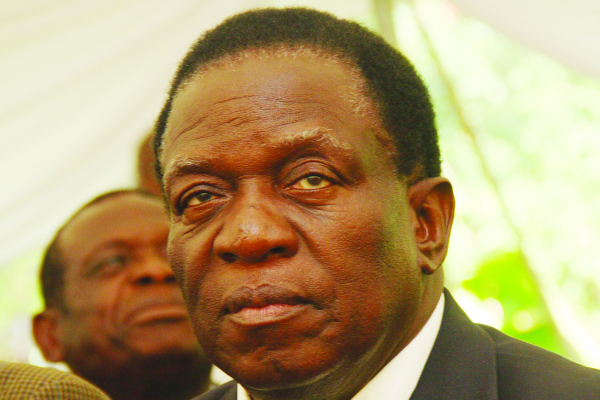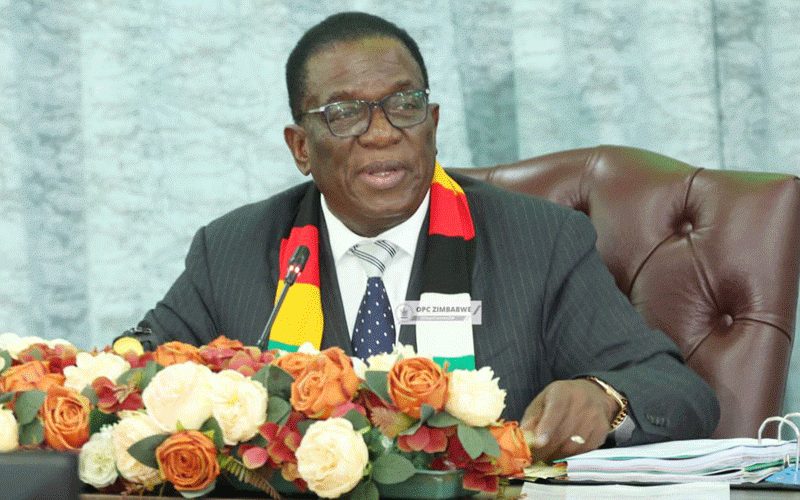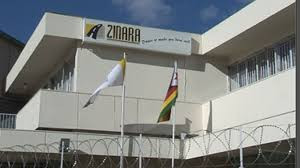
WITH time fast running out ahead of Monday’s general elections, opposition MDC Alliance presidential candidate Nelson Chamisa has reportedly pressed the panic button amid fears that the Sadc Troika may not find time to convene an urgent meeting to resolve his poll demands.
BY RICHARD CHIDZA
This comes as President Emmerson Mnangagwa today meets with the party’s notorious “Green Bombers”, infamous for the orgy of violence that characterised previous elections during former President Robert Mugabe’s era.
The youthful opposition leader, who had initially requested that Sadc convene an extra-ordinary summit over the “Zimbabwe crisis”, last week had to change tact and request a troika meeting before the elections.
The MDC Alliance leader has in the last few days narrowed down his demands to two key issues – security and chemical composition of the ballot paper.
Chamisa’s election-rigging fears escalated yesterday following reports that his rival, Mnangagwa would today meet the ruling party’s dreaded storm-troopers – National Youth Service graduates – popularly known as the Green Bombers, to scale up Zanu PF’s election campaign.
The opposition leader’s spokesperson, Nkululeko Sibanda, confirmed to NewsDay that the delay by Sadc was causing them sleepless nights.
“We have communication from Sadc to the effect that they received our letter requesting that the Troika meet to consider the crisis in Zimbabwe. This is a very urgent matter to us and we don’t have much time. We are now waiting for official communication on Sadc’s decision,” he said.
- Chamisa under fire over US$120K donation
- Mavhunga puts DeMbare into Chibuku quarterfinals
- Pension funds bet on Cabora Bassa oilfields
- Councils defy govt fire tender directive
Keep Reading
Asked if Chamisa had given Sadc a timeframe within which to convene the meeting, Sibanda said his principal did not, but might be forced to consider that option considering the little time left before the polls.
“No. We did not give them (Sadc) any timeframe, but we are running out of time. The president (Chamisa) has not made an indication as yet, but he will consider whether to write again. This depends on whether Sadc acts or not,” he said.
The current Sadc Troika is made up of Angola, Zambia and Malawi, with South Africa as the regional bloc’s overall chairperson.
South African Department of International Relations and Co-operation spokesperson Ndivhuwo Mabaya last week confirmed that the Sadc chairperson, President Cyril Ramaphosa, had received Chamisa’s complaint letter.
Mabaya was not available for comment yesterday as reports emerged that Angola’s Foreign minister Manuel Domingos Augusto had landed in Harare, probably on the same mission.
“Domingos is in Harare. Remember he is Sadc Troika chairperson of the Council of Ministers. There is a possibility he could meet Chamisa,” a source close to the opposition leader said.
But Chamisa’s spokesperson could not be drawn into discussing the Angolan’s visit. “Yes, we have heard he is in Harare, but we do not want to mix or cloud issues. Our position remains the same, Sadc is yet to directly respond to our request and that is what we are waiting for,” Sibanda said.
Contacted for comment, Foreign Affairs secretary Joey Bimha, said: “He (Augusto) is chairperson of the Troika Council of Ministers and normally, a person in that position chairs Sadc’s observer mission to any country that is having elections. I am not sure if he is in the country because I was away, but it would not be surprising.”
Asked if the regional body had communicated with government on Chamisa’s demands, Bimha said: “We do not have any such communication. In any case, it is the chairperson of the troika who decides if there is need to meet on a particular subject. They do not meet at the whim of anyone who writes to them.”
Chamisa at the weekend reportedly told supporters that Sadc “understands our position” and his party’s grievances. MDC Alliance spokesperson Welshman Ncube yesterday sounded the alarm bells, accusing Mnangagwa of seeking to re-ignite fear in the electorate.
“There is always a reason to be fearful where Zanu PF begins to meet with institutions or groups that have been used in the past for coercion and intimidation.
“If, indeed, this was a new dispensation, Mnangagwa would understand the relationship between the electorate and these national youth service graduates is tenuous. There was no need to bring them back into the election matrix. It sends the wrong message,” he said.
Ncube challenged Mnangagwa to dismantle the National Youth Service programme, in line with his pledge to depart from the country’s dark past.
“If anything, the President must have moved to dismantle that whole group. These youths were used as Zanu PF storm troopers and activating them a week before elections should be a cause for concern,” the former Industry minister said.
MDC-T presidential candidate Thokozani Khupe’s deputy, Obert Gutu, concurred, arguing Mnangagwa’s meeting with the “terror group” was meant to instil fear in the electorate.
“It’s not a coincidence that Mnangagwa is meeting this terror group on the eve of an election. It is meant to invoke sordid memories of the Green Bombers’ activities, especially in 2008. Mnangagwa’s meeting with this Zanu PF hit squad is meant to ignite fear and remind the populace of its existence,” Gutu said.
But political analyst Sitembile Mpofu said Mnangagwa would have scored an “own goal” if he resorts to violence.
“I think Zanu PF has learnt better than anyone else that violence does not win you friends at home or beyond, hence, the President’s emphasis on his party and government’s commitment to peace,” Mpofu said.
“Mnangagwa must convince Zimbabweans and the international community that his message as the new leader of his party is different. The opposition has little to fear because any violence instigated by Zanu PF would derail Mnangagwa’s quest for legitimacy.”
Coalition of Democrats (Code) presidential candidate, Elton Mangoma, said Mnangagwa’s meeting with the group would be an endorsement of its dark activities.
“Obviously, there is cause for alarm if perpetrators of violence get this kind of treatment from the top. We had asked for peace pledges from the army, police, intelligence and the militia. Without that, they are playing a double game,” Mangoma said.
The infamous National Youth Service graduates were accused of setting up torture bases during the bloody 2008 presidential run-off election, which reportedly claimed the lives of over 300 MDC-T activists.
This forced then MDC-T leader Morgan Tsvangirai to pull out of the presidential race, citing persecution of his supporters, leaving Mugabe as the sole candidate although his victory was roundly condemned by the international community.











